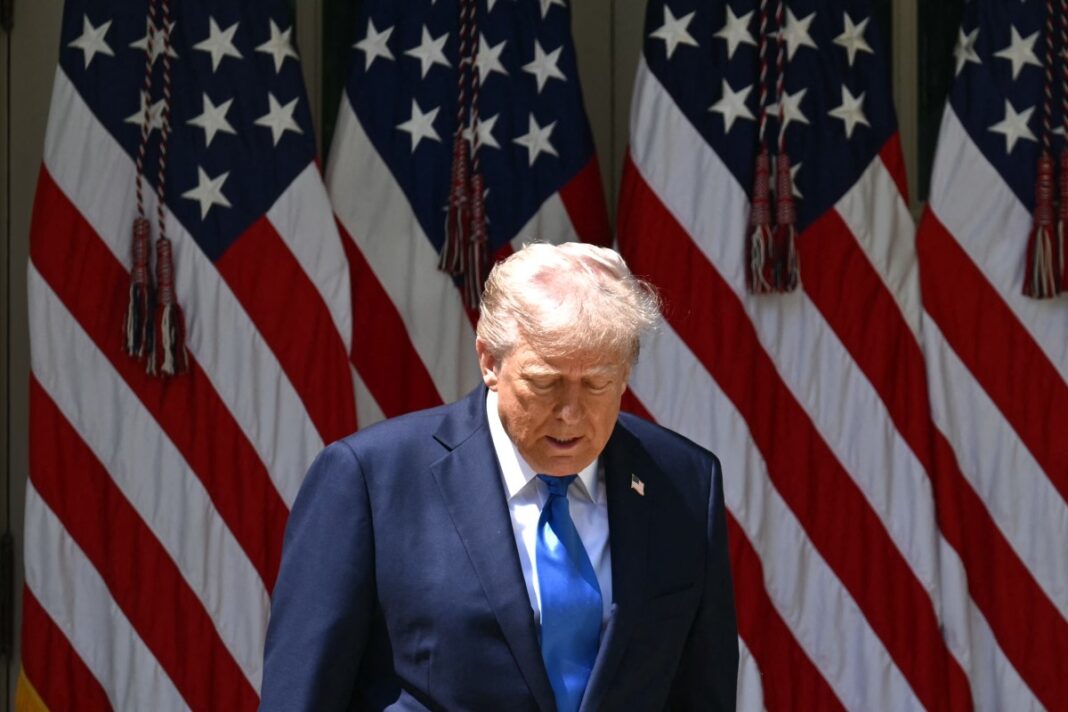China Blames Trump for Fueling Israel-Iran Tensions with Provocative Remarks…China has accused former U.S. President Donald Trump of dangerously escalating the conflict between Israel and Iran through inflammatory rhetoric and provocative warnings.
As the Middle East crisis deepens, Beijing has strongly criticized Trump’s recent public statements, claiming they are exacerbating an already volatile situation and undermining global efforts to reduce hostilities.
The rebuke came from China’s Foreign Ministry, which issued a pointed condemnation of Trump’s latest remarks urging residents of Tehran to evacuate immediately in anticipation of further Israeli military action.
Chinese Foreign Ministry spokesperson Guo Jiakun stated that such language from a figure with considerable international influence amounts to “pouring oil on the fire.”
Guo added that “fanning the flames, making threats, and mounting pressure will only intensify and widen the conflict,” rather than help ease tensions or promote peace.
He called on all influential nations, particularly those with leverage over Israel, to act responsibly and support de-escalation efforts.
China’s sharp response reflects growing international anxiety over the rapid deterioration of the situation between Israel and Iran.
The conflict has entered a new and perilous phase, with Israel conducting a surprise aerial assault on Iranian targets, which it claims are linked to Tehran’s alleged nuclear weapons development.
Iran denies pursuing nuclear arms, maintaining that its atomic program is for peaceful purposes. In retaliation for the strikes, Iran launched a wave of missile attacks targeting key Israeli cities, including Tel Aviv.
Both nations have suffered casualties and substantial infrastructure damage in what is now feared to be the most intense military confrontation in the region in years.
Trump, however, has shown no signs of retreating from his hardline position.
Rather than joining calls for an immediate ceasefire, he has applauded Israel’s military response, describing their operations as “excellent” and necessary for preventing Iran from becoming a nuclear threat.
Trump has further warned that if Iran continues its retaliatory attacks, Israeli strikes “will only get more brutal.”
These comments, alongside a bolstered U.S. military presence in the region, have been widely interpreted as a signal of unwavering support for Israel.
While Trump is no longer in office, his voice remains influential, especially in the context of American foreign policy rhetoric.
READ MORE: Mass Exodus from Tehran as Israel-Iran Conflict Intensifies; Global Oil Prices Tumble 4%
His statements, coupled with U.S. military maneuvers in the Gulf region, have raised alarms among world leaders and international organizations striving to prevent a wider regional war.
The economic impact of the conflict has also been swift. Oil prices initially soared on fears of disruptions to supply lines from the Gulf, particularly through the Strait of Hormuz—a key maritime chokepoint through which a significant portion of the world’s oil passes.
However, markets cooled slightly after confirmation that Israeli strikes had avoided Iran’s primary oil production and nuclear facilities.
Brent crude prices subsequently dipped by 4%, though market analysts warn that further instability could trigger renewed spikes.
Amid growing global concern, the United Nations and the International Committee of the Red Cross have issued urgent appeals for restraint, emphasizing the importance of protecting civilian populations and preventing a humanitarian crisis.
China, in its official statements, has echoed these sentiments, urging both parties to return to dialogue and reaffirming its support for a political solution through peaceful means.
As the fighting continues, Beijing’s criticism of Trump underscores the geopolitical complexity surrounding the conflict.
While the former U.S. president’s comments reflect a firm pro-Israel stance, many countries fear that such rhetoric could inflame the situation further and provoke a broader regional conflict.
With no immediate diplomatic breakthrough in sight, the risk of escalation remains dangerously high, leaving the international community watching anxiously as events unfold across the Middle East.




